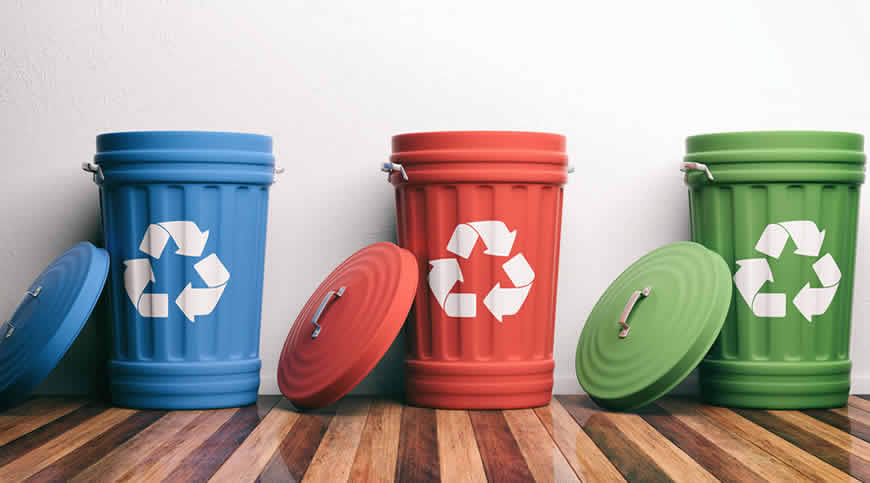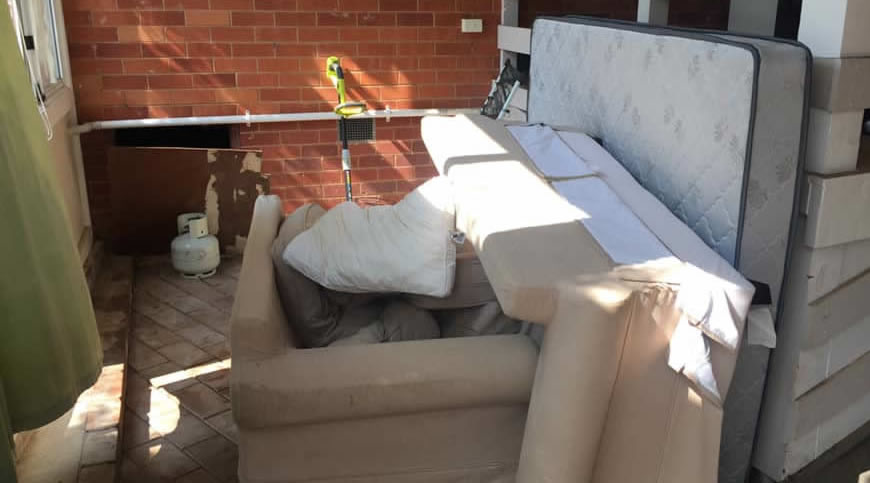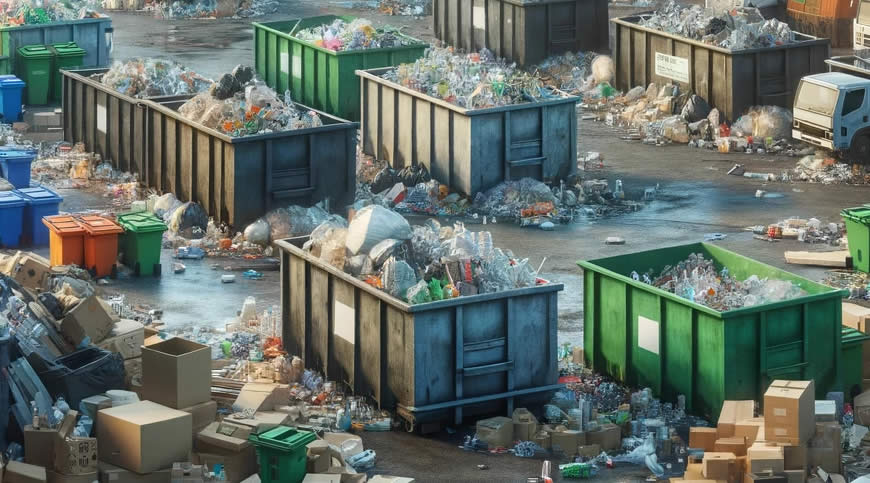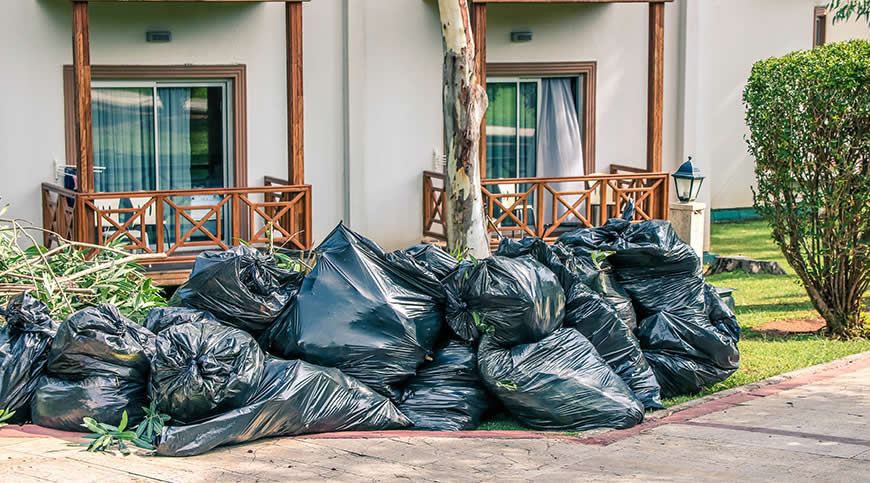
When it comes to household waste, we all have a responsibility to dispose of it properly. Sure, your home rubbish bin is a convenient place to chuck a multitude of things, but did you know there are some items you should never toss in there? Read on for the top 10 things you should keep out of your home rubbish bin.
- Batteries: Batteries, especially the rechargeable types, contain heavy metals that can leak into the environment. Proper recycling can remove these toxins safely.
- Pharmaceuticals: Flushing these down the toilet or throwing in the bin causes them to end up in our waterways, harming wildlife and potentially, human health.
- Paint and Chemicals: These can be hazardous to waste handlers and can leach into soil and groundwater if not disposed of properly.
- Electronics: Electronic waste, or e-waste, is a rapidly growing problem. It’s best to take your old gadgets to a recycling centre.
- Light bulbs: Certain types of light bulbs can contain mercury, a dangerous heavy metal. Many retailers offer recycling programs for these.
- Motor oil: One litre of motor oil can contaminate one million litres of water. Always take used oil to a recycling centre.
- Plastic bags: These don't break down in landfills and can harm wildlife. It’s best to reuse them or take them to a recycling facility.
- Ink cartridges: These are often collected for recycling at office supply stores, keeping them out of our landfills and conserving resources.
- Food waste: This can be composted at home, reducing the amount of waste sent to landfill and creating a nutrient-rich soil improver for your garden.
- Old appliances: Many components can be recycled, so it's worth contacting your local waste facility or arranging a special collection.
When we dispose of things correctly, we're doing more than just following rules - we're helping to protect the environment and preserve our planet for future generations.
Remember, it's our job to take care of the planet and that starts at home. So, let's challenge ourselves to think twice before we toss anything into our home rubbish bins. Let's recycle, reuse, and reduce!
1. Batteries
Think twice before tossing your used batteries into the bin. Batteries, especially those of the lithium-ion variety, contain toxic chemicals that can leach into the soil and groundwater when sent to a landfill. Besides, there are many recycling programs that would be more than happy to take your old batteries and dispose of them properly.
Batteries aren't just bad for the environment when dumped in a landfill; they can also be a fire hazard in your bin at home.
2. Pharmaceuticals
Many people aren't aware that certain items should never be tossed into the home rubbish bin. One of those items is pharmaceuticals. Here's why.
- Environmental Impact: When medications end up in landfill, they can leach into the soil and water supply, potentially causing serious environmental harm. This isn't just an eco-warrior's concern - it can directly impact our health too.
- Public Health Risk: Discarded drugs can be picked up by children or pets, leading to accidental ingestion. Plus, drugs in the rubbish bin can be found and misused by others, contributing to the serious issue of prescription drug abuse.
Responsible Disposal
So, what's the right way to get rid of unused or expired medications? Many pharmacies offer a take-back service. You can also enquire at your local council about safe disposal methods. It's a small step that makes a big difference.
- Do: Return unused or expired medications to a pharmacy or use a council disposal service.
- Don't: Throw pharmaceuticals in your home rubbish bin or flush them down the toilet.
When it comes to pharmaceuticals, it's not just about tidying up. It's about protecting our environment and community too.
3. Paints and Chemicals
Paints, varnishes, and other chemicals should never find their way into your general rubbish. These substances contain harmful toxins that are dangerous to both humans and the environment.
- Paint: If you have leftover paint, consider donating it to a community project or a local school.
- Varnishes and solvents: These are highly flammable and should be taken to a hazardous waste facility.
- Pesticides and fertilisers: These can contaminate water sources and harm wildlife, so they should also be taken to a hazardous waste facility.
4. Electronic Waste
Old laptops, mobile phones, and other electronic gadgets, also known as e-waste, should not be thrown in your rubbish bin. These items often contain heavy metals like lead and mercury, which can be harmful to the environment.
|
Electronic Item |
Why It's Harmful |
|
Laptops |
Often contains lead, which can contaminate soil and groundwater. |
|
Mobile phones |
Contain toxic metals like mercury, which can harm local ecosystems. |
|
Televisions |
Some older models have tubes that contain harmful chemicals. |
Instead, consider donating your unwanted electronics to a reputable recycling program. Not only will you be helping the environment, but you could also be helping someone in need.
5. Light bulbs
Believe it or not, your average household light bulb should not be discarded in your everyday rubbish bin.
Why are light bulbs a problem?
The problem lies not with all light bulbs, but specifically with compact fluorescent lamps (CFLs). These energy-saving bulbs are a great choice for lighting your home, but they contain a small amount of mercury that can be harmful if released into the environment.
There are also LED bulbs to consider. While they don't contain mercury, they are packed with electronic components that make them a poor candidate for landfill disposal.
How should I dispose of light bulbs?
Instead of tossing these bulbs in the bin, why not consider the alternatives?
- Many recycling centres accept CFLs and other types of bulbs.
- Some retailers offer in-store recycling programs. Take back your used bulbs next time you go shopping.
- Local councils often run collection schemes for hazardous waste, including CFLs.
It's not just about keeping harmful substances out of the environment. It's about making the most of the materials we have. By recycling, you're enabling the valuable components of these bulbs to be reused. It's a win-win!
Make the switch to safer alternatives
If you're worried about disposing of CFLs and LEDs, why not switch to incandescent bulbs? While not as energy-efficient, they don't contain any hazardous materials and can be safely disposed of in your household rubbish.
So, next time you flip the switch and find a bulb has blown, think twice before tossing it in the bin. Light bulbs are small, but the impact of disposing them incorrectly can be significant.
6. Motor oil
Most of us have been there - you've just finished a quick oil change on your car at home and you're left with a container of used motor oil. It might be tempting to just chuck it in the rubbish bin, but here's why you shouldn't.
A Hazardous Material
Motor oil is classified as a hazardous material. This means it's potentially harmful to the environment and human health. Tossing it in your home rubbish bin means it will eventually end up in a landfill, where it can seep into the ground and contaminate soil and water supplies.
Recycling is the Way to Go
Instead of binning it, used motor oil can - and should - be recycled. Most local councils and townships have recycling programs specifically for motor oil. It's usually as simple as taking your used oil to a designated drop-off point.
It's not just about keeping harmful substances out of your bin - it's about taking the extra step to make sure they're disposed of correctly.
Reusing Motor Oil
Another option is re-refining, where the motor oil is processed and used again. It's a less common method but an excellent way to reduce waste and conserve resources.
- Do not pour motor oil down drains or toilets.
- Do not attempt to burn it.
- Do store it safely until you can dispose of it properly.
In conclusion, used motor oil has no place in your home rubbish bin. Always opt for proper disposal methods to protect both the environment and your community.
7. Plastic bags
Think twice before tossing your plastic bags into your home rubbish bin. Not only are they notoriously difficult to recycle, but they can also pose a serious threat to our environment.
The Problem with Plastic Bags
Plastic bags can take over 500 years to decompose in a landfill. During that time, they break down into microplastics, tiny fragments that can leach harmful chemicals into soil and water.
So, what should you do with your unwanted plastic bags?
- Consider reusing them. You'd be surprised at how handy they can be around the house.
- Many supermarkets now offer plastic bag recycling stations. Just bring your bags along on your next shopping trip.
- Switch to reusable bags. They're more durable, and they prevent unnecessary waste in the long run.
Every small action can make a big difference when it comes to protecting our planet.
8. Ink cartridges
Ink cartridges are typically made of plastic, which is a notorious contributor to environmental pollution. But that's not all. The residual ink left within these cartridges is harmful, too. It contains chemicals that can contaminate soil and water, posing hazards to both wildlife and human health.
The Recycling Route
So, what should you do with your spent ink cartridges? Recycle them, of course! Many office supply stores, manufacturers, and recycling centres will happily accept your used cartridges. Some even offer rewards or discounts in exchange.
By recycling ink cartridges, we not only prevent unnecessary environmental harm, but we can also give these items a new lease on life!
Making Ink Cartridge Disposal Easier
Don't have convenient access to recycling facilities? Don't worry! There are numerous charities and online programs that will happily send you pre-paid envelopes for your used ink cartridges. You just have to drop them into the post.
In conclusion, ink cartridges definitely belong on the list of things you should never put in your home rubbish bin. It's a simple change, but by taking this step, you're contributing to a cleaner, healthier planet. Remember: every little bit helps!
9. Food waste
It's all too easy to scrape those leftover bits of food straight into the bin, isn't it? But here's the thing: When food waste goes to landfill, it breaks down without access to air, producing harmful greenhouse gases. Plus, it's a waste of valuable nutrients that could be put to better use.
The Greenhouse Gas Culprit
When food waste rots, it releases methane, a potent greenhouse gas. According to the Intergovernmental Panel on Climate Change, methane is more than 25 times as potent at trapping heat in the atmosphere than carbon dioxide over a 100-year period.
Methane's potential to trap heat over a short period is even more alarming. Over a 20-year timeframe, it's 84 times more potent than CO2.
Food Waste Recycling Is the Way Forward
The good news is that you can easily recycle most food waste at home. Composting is a simple and effective way to turn your food scraps into nutrient-rich soil conditioner. It's like magic: You reduce waste and create something useful at the same time!
- Vegetable peelings
- Fruit waste
- Tea bags
- Coffee grounds
- Old bread
These items make great composting material. On the other hand, avoid composting meat, dairy products, and cooked food, as these can attract pests.
A Note on Council Collections
Many local councils provide food waste recycling services. They usually accept a broader range of food waste than you can compost at home. If your council offers this service, take advantage of it!
|
Food Item |
Home Composting |
Council Collection |
|
Vegetable peelings |
Yes |
Yes |
|
Fruit waste |
Yes |
Yes |
|
Meat |
No |
Usually |
|
Dairy products |
No |
Usually |
|
Cooked food |
No |
Usually |
No more food waste in the rubbish bin, alright? Let's do our bit to protect the environment and reduce waste.
10. Old appliances
Got an old toaster that's toast or a microwave that's gone micro-off? It may seem logical to chuck them in the bin and wave goodbye, but hold on! Appliances, old or new, should never find their way into your home rubbish bin.
Why should you not bin appliances?
Appliances are a complex mix of electrical components and metals, some of which can be harmful if not disposed of correctly. Not only that, but many parts of your old appliances can actually be recycled and reused, reducing demand for new resources.
What to do instead?
When it's time to say farewell, consider these options:
- Recycling centres: Many local waste facilities accept old appliances for recycling.
- Charity shops: If it's still in working order, why not donate it? One person's trash is another's treasure, after all.
- Sell or give it away online: Websites like Freecycle or Gumtree are fantastic for finding a new home for your unwanted goods.
Proper disposal of old appliances is not just about keeping your home tidy; it's about respecting our planet and conserving its resources. So next time you're faced with a defunct device, think twice before chucking it in the bin.
Wrapping It Up
As responsible homeowners and citizens, it's our duty to ensure we handle our waste responsibly. By understanding and avoiding the disposal of these ten items in our household rubbish bins, we not only contribute to a cleaner and healthier environment, but we also make the waste management process safer and more efficient. Being mindful about our rubbish isn't just about following rules, it's about caring for our planet and future generations. Let's all play our part in making the world a cleaner place, one bin at a time. Remember, it's not just waste, it's misplaced resource. So, think before you bin it!


